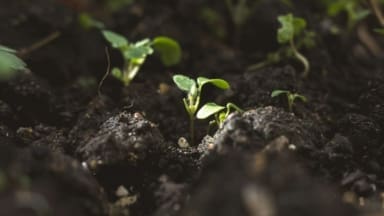
Twenty horticultural organisations, including the British Growers Association, Bulrush Horticulture, Defra, Garden Centre Association (GCA), the Gardens Group, Durston Garden Products Ltd and the Horticultural Trades Association (HTA) are collaborating to help accelerate the UK’s transition away from peat. The move fosters greater collaboration right across the horticulture sector, with the key aim of cutting through confusion in the compost sector and helping gardeners make more sustainable choices.
At the 2025 Garden Press Event, the partnership launched a new concise peat-free guide to arm gardeners with the right knowledge to grow successfully. Entitled, ‘Peat-free works differently’, the guide outlines how gardeners can get the best results from peat-free compost, with simple steps to adjust usage, watering and feeding.
Highlighted by new research commissioned by Enrich the Earth, there is an urgent need for more consistent and reliable advice as more than 20% of gardeners (novices and expert growers) were found to be confused about different compost types and what makes them sustainable.
Even though, almost 90% of amateur gardeners say they support a complete ban on the sale of peat products, many continue to buy peat-based compost. The new research, showed that many gardeners are reluctant to make a switch, with 43% stating that they stick to composts they know. Unsurprisingly, this trend was particularly prevalent amongst those over the age of 55 and the more experienced gardeners surveyed. Equally, whilst 67% of gardeners said they care about sustainable composts, only 30% consistently buy peat-free.
“We have spent years researching and developing peat-free alternatives that really work. Finally, we have a peat-free collection that we are extremely proud of; one that is outperforming peat-free and peat-reduced competitors in independent trials and helping gardeners achieve outstanding results. However, we know that there is a distinct lack of education around peat-free, with inaccurate and inconsistent information available for growers. Unfortunately, this has lead to gardeners not achieving the results they want or shying away from peat-free altogether, which isn’t great news for anybody. The ongoing delays and uncertainty over the peat ban haven’t helped but we do know a commercial ban is inevitable, so it is vital we do what we can now to remove gardeners’ reliance on peat. We were delighted to join the peat-free partnership and come together with key players in the industry to give gardeners the support they need and bring us all a step closer to a peat-free future,” explains Durston Garden Products Ltd Director, Dan Durston.
The campaign is also being supported by the Royal Horticultural Society (RHS), which has made its new free advisory service available for gardeners if they have any questions about peat-free growing (via peatfree@rhs.org.uk), whilst the conversation can be tracked on social media via #peatfreesuccess.
Professor Alistair Griffiths, RHS Director of Science and Collections, added: “It is a really positive step to have come together with so many organisations to help provide these top tips for gardeners, to make sure they can grow successfully peat-free. At the RHS, we know the simple action of choosing peat-free compost keeps peat in the ground, where it has a vital role in storing carbon, regulating water in the landscape and as a habitat for wildlife. We are pleased to be able to offer a dedicated peat-free email, so anyone can get in touch with our expert advisors if they have further questions about using these composts. Gardeners can follow this guidance on the leaflets to get the best from peat-free compost and take an important action for our planet.”

